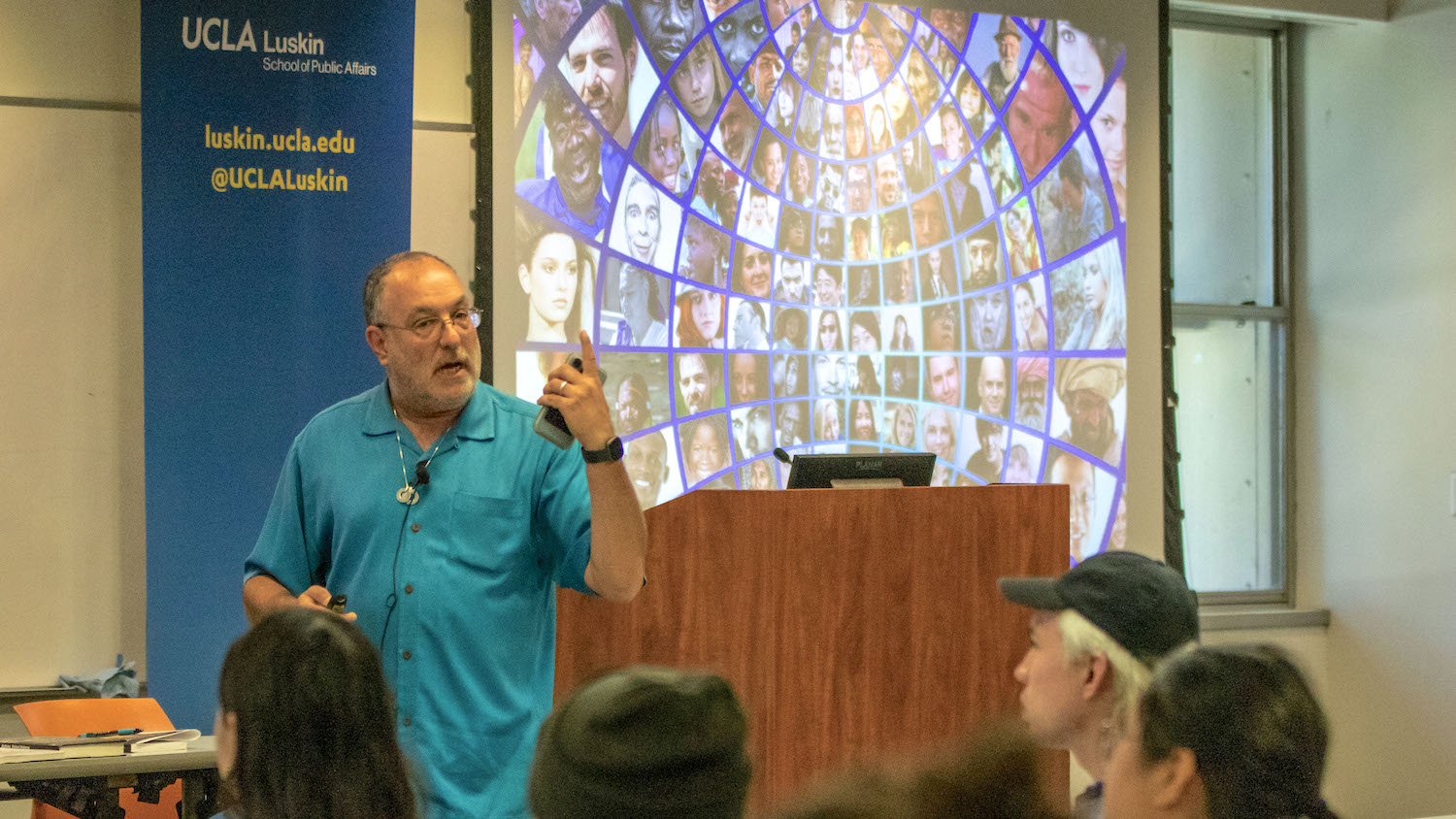Mass shootings at schools in the United States continue to make headlines, terrifying students, parents, educators and communities. Yet groundbreaking new research shows that, during the two decades prior to the COVID-19 pandemic, there was a steep and steady reduction in serious forms of violence, including bullying and weapon-related behaviors, across California’s middle and high school campuses.
The overall improvement in campus climate is welcome news for families concerned about sending their children to a safe environment, and it suggests that eruptions of gun violence should be treated as a separate social and psychological phenomenon, said UCLA scholar Ron Avi Astor, co-author of the study published this week in the World Journal of Pediatrics.
“Each school shooting is a devastating act that terrorizes the nation, and there is a growing sense in the public that little has changed in two decades to make schools safe,” Astor said. “But mass shootings are just one part of this story. Overall, on a day-to-day basis for most students, American schools are safer than they’ve been for many decades.”
Astor is a professor of social welfare and education at the UCLA Luskin School of Public Affairs and the UCLA School of Education and Information Studies. Using data from the confidential California Healthy Kids Survey, he and co-authors Rami Benbenishty of Hebrew University of Jerusalem and Ilan Roziner of the Sackler School of Medicine at Tel Aviv University analyzed responses from more than 6 million middle and high school students from 2001 to 2019.
“During the 18-year period examined, California secondary schools had massive reductions in all forms of victimization,” including physical threats with or without weapons, verbal and psychological abuse, and property offenses, the authors wrote. Noteworthy findings include:
- a 56% reduction in physical fights
- a 70% reduction in reports of carrying a gun onto school grounds, and a 68% reduction in bringing other weapons, such as a knife, to school
- a 59% reduction in being threatened by a weapon on school grounds
- and larger declines in victimization reported by Black and Latino students compared to white students
“These findings were evident in more than 95% of California schools, in every county, and not in wealthy suburban schools only,” Astor said.
Over time, students’ sense of safety and belonging at schools rose steadily, the study found. Astor attributed the improvement in campus climate to new policies, stepped-up resources and community efforts prioritizing the development of emotional maturity in youth.
The authors noted that the study covered the period before the COVID-19 pandemic shut down schools across the country, which may have triggered some mental health issues and outbursts of violence.
“It is important to learn from the policies and interventions that have helped reduce school violence in the last two decades to face these new challenges,” the authors wrote.



